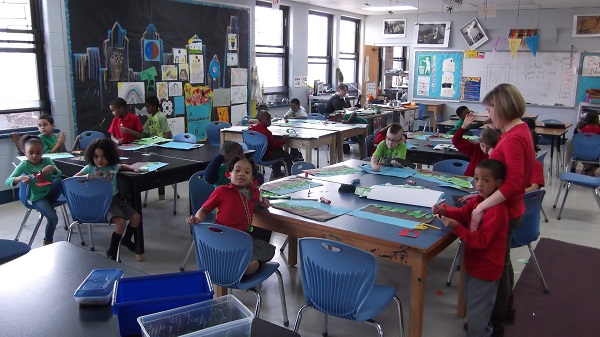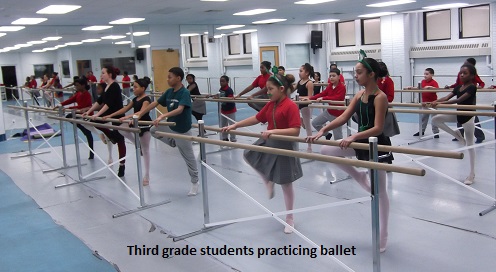Media

Changing the Culture at H.R. Edmunds
The first Winter Concert was the turning point. That’s when students at The Philadelphia Charter School for Arts & Sciences—formerly known as H.R. Edmunds—began believing in themselves.
“Our kids learned they had something to be proud of. They started to take classes more seriously. It was amazing to see,” said Judith Taggart, Dean of Students for grades K-2.
By all accounts, the concert was a resounding success. But things weren’t always so rosy at the Northeast Philadelphia school.
Prior to 2012, H.R. Edmunds was a traditional public school known for violence and dismal academic performance. The situation became so dire that the district brought in an independent operator to run the school and assume management. Edmunds was awarded to String Theory Charter Schools as part of Philadelphia’s renaissance schools initiative.
The new leadership team decided to kick off the year with a musical performance from an established performing arts school in downtown Philadelphia. The administration intended to show their new charter students what they should aspire to achieve.
As the performance began, the Edmunds students laughed. They booed, hissed, and jeered. The children never before witnessed a live concert, and they never learned how to conduct themselves in an audience.
Fast-forward a brief four months later to the 2012 Winter Concert: The same students laughing and jeering in September were now up on stage themselves, playing instruments and performing. This was a 180-degree turnaround. The culture changed.
Michael Rocco, principal at Arts & Sciences and a three-decade veteran of Philadelphia public schools, is proud of the new culture emanating from his classrooms. He attributes much of the school’s success to its longer school day and unique curriculum. In addition to the core subjects, K-5 students try their hands at various musical instruments, ballet, creative writing, and foreign language. By 6th grade, each student declares a concentration and focuses exclusively on this subject for 90 minutes each morning.

Jaime Mong, Dean of Students for Grades 6-8, explains that when new management took over, “students were surprised their tests were actually being graded.” Prior to the charter school transition, Edmunds children had routinely submitted assignments and failed to receive a grade—let alone substantive feedback.
The structure and incentives at Arts & Sciences are unique from Philadelphia’s traditional public schools. Teachers are hired at will. “It’s essentially a one year contract for everyone,” Rocco explains.
It’s impossible to argue with the results in the classroom. Arts & Sciences’ School Performance Profile (SPP) score has dramatically improved every year. In 2013-14, the SPP score exceeded the district average by ten points.
School leaders anticipate even better results in the coming years. It all starts with the new culture of high expectations. “This is our family here at Arts & Sciences. We know these kids,” said Dean Taggart. “We care for them.”